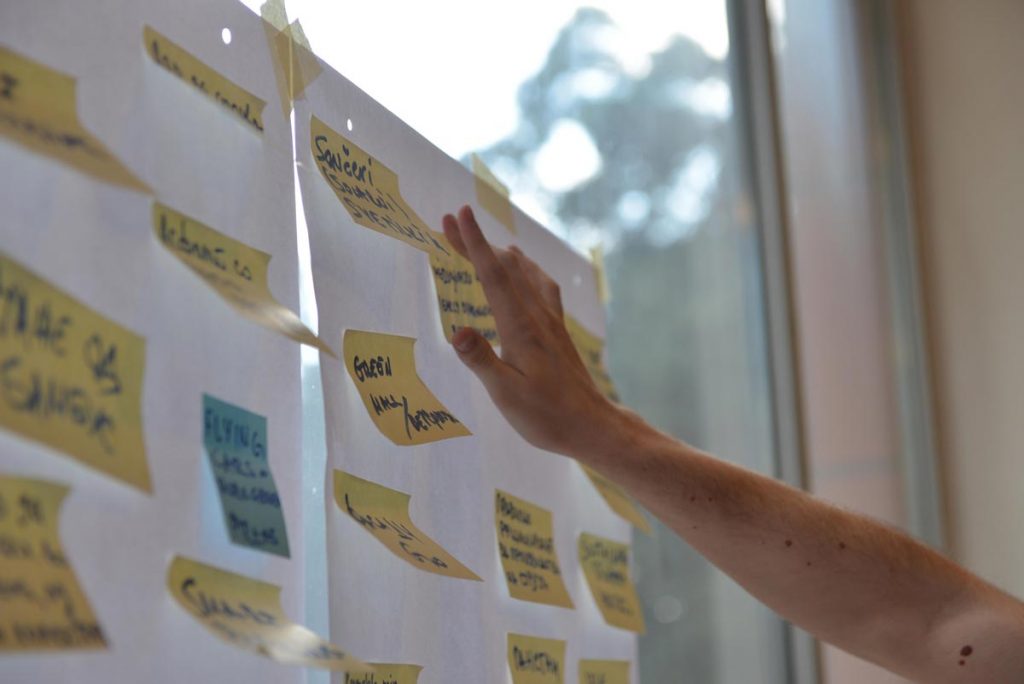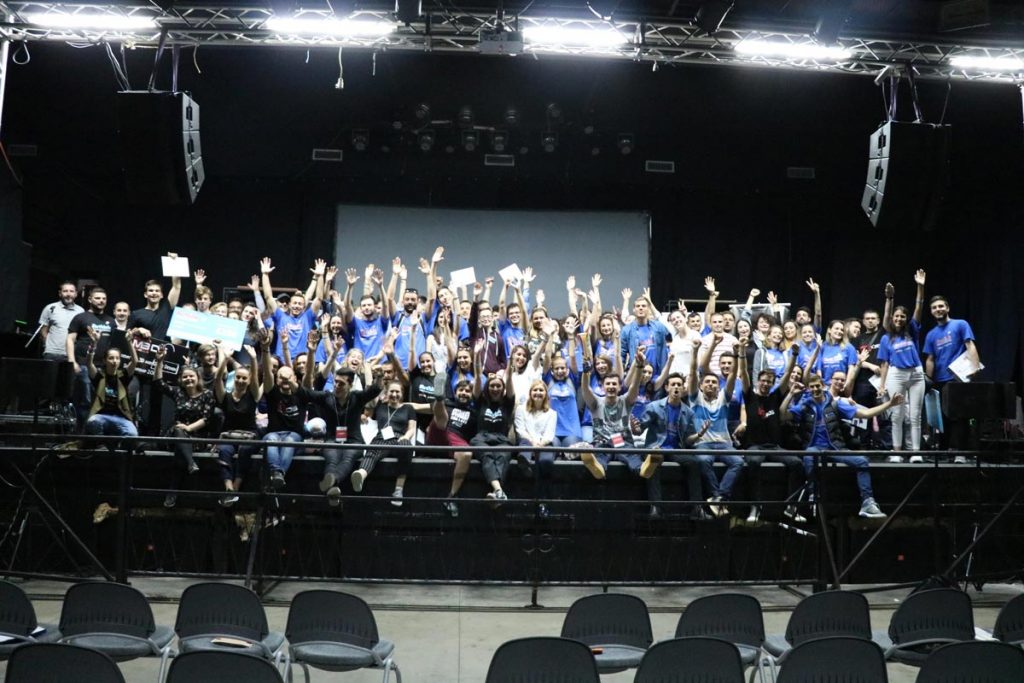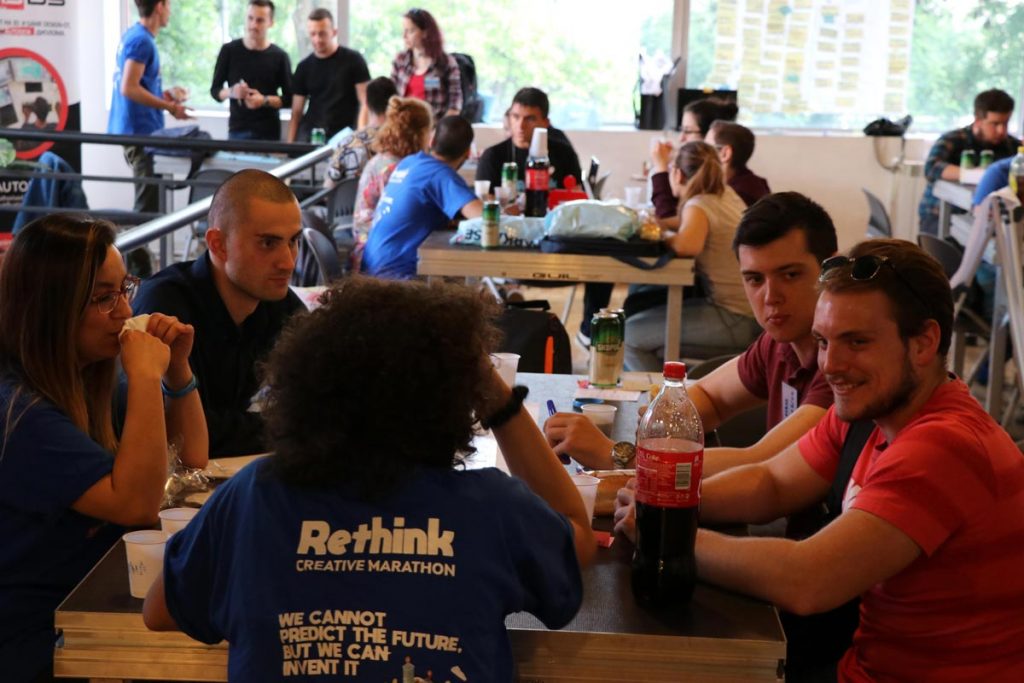City governments around the world are investing heavily in smart city technologies. From the internet of things and predictive analytics to automated infrastructure. Yet a lot of investments in the past have been wasted because of a failure to take the needs of citizens into account or the role that they can play in making their cities smarter. The demand of building a ‘smart city’ has been growing rapidly, and in order to create valuable solutions, involving citizens in the process is crucial.
To tackle this issue, our team organized an open 3-day creative marathon where young citizens from Skopje came together to design and propose innovative solutions for making Skopje a smart city. 100 participants gathered in small teams worked intensively with 20 Solveo facilitators and 20 mentors to discover answers to crucial questions:
How can we improve the process of implementing modern technology in cities?
How can we make it easier for people to adapt and use the benefits of technology in their city?
How can we contribute to Skopje to become a smart city?
RETHINK CONFERENCE
The event began with a large conference where carefully selected experts shared insights on various aspects of the topic: online payment and user experience, concepting idea for a smart city, marketing communications of smart city projects, rethinking how the government runs the cities of the future, youth e-participation as a pillar for sustainable society and how smart buildings are changing today’s workplace.
Gligor Davevski on smart buildings – doXteam
Elena Draganovska on smart money – InPlayer
Ira Stefanov Babik on smart communication – Brand Union
Hajan Selmani on smart government – Haselt
Vladimir Trajkovik on smart education – FINKI
David Pavlovski on Smart mobility – Kiimo
Nikola Angelovski – Smart city live demo
Mihajlo Dimitrievski – Smart city live demo
RETHINK CREATIVE MARATHON
The idea behind this creative marathon is to co-create innovative solutions together with various stakeholders, rapidly test and validate the solutions and discover new opportunities for growth. During the sprint, we will answer critical questions through design, prototyping, and testing ideas with customers. The process of innovation is iterative and agile and requires embracing change and customer involvement. The core value of the sprint is that it allows us to fast-forward into the future to see our finished product and customer reactions, before making any expensive commitments.
The first step of the sprint is for mapping out problems and opportunities,and defining a clear focus. Then participants need to map all stakeholders, create an ideal user persona and conduct rapid qualitative research to gain in-depth understanding of the customers real pains. Once we have vital insights, participants go to the ideation phase where they suggest various solutions to the identified problems. In the next phase, we prototype and test the suggested solutions in order to get early feedback, and then we improve the solutions using the data gathered, and we select the most promising concepts. Lastly, participants create a roadmap and timeline for implementation of their solutions and get ready to go to the implementation phase and present their solutions in front of selected jury members. At the end of the creative marathon, three teams were selected to continue working their solutions with mentorship.
The winning team created a solution that has the biggest likelihood of being implemented, their idea was to set up platforms on the ground that will produce electric power from the human step. Each platform is connected to three generators, which produces 5 to 8 W from only one human step, the generated energy is stored in batteries and then is used for providing street lighting. The platforms would be step up at locations across Skopje where there is the largest flow of people. The main purpose of these solution is to produce energy in an efficient way and save finances.
The second-best team presented an innovative solution, utilizing residential roofs by developing urban agriculture using the aquaponics system. The Aquaponics system is a mini ecosystem that maintains itself. The cultivation of the fish and the nutrients they create enables fast and high-quality growth of fruits and vegetables without the need of fertile land and toxic substances. The cultivation uses 10 times less water than traditional agriculture and allows the production of vegetables and fruits at any time of the year.
The team which won third place made a solution for innovative and smart selecting waste. They introduced the platform “Skopje is Recycling” where you can find out about the new process of recycling and selecting the waste. The recycling process that they introduced is simple and easy to use, there are smart bins in the municipalities which are able to recognize what material goes inside and how full they are. Their main goal is to change the habit of the citizens for selecting waste through a tailored communication strategy integrated into the platform itself.



